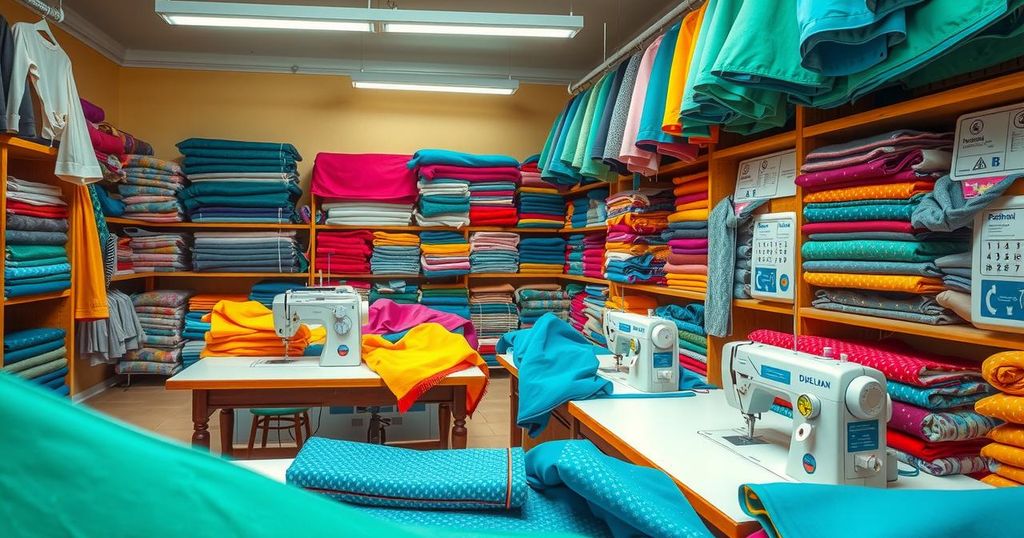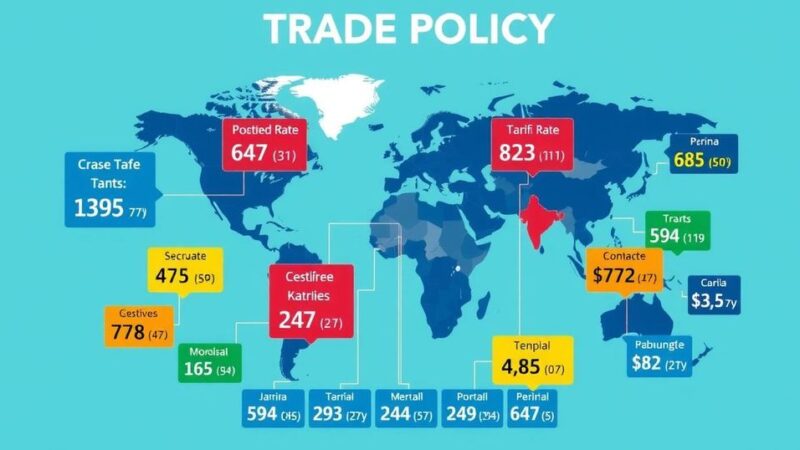Sri Lanka’s apparel industry is alarmed by the U.S. Reciprocal Tariff policy, which could raise tariffs on Sri Lanka to 44%, jeopardizing the sector’s exports. JAAF commends the government’s quick action to establish a working group to evaluate economic impacts. The U.S. is Sri Lanka’s largest apparel export market, representing over 40% of the industry’s exports.
The Joint Apparel Association Forum (JAAF) of Sri Lanka has raised concerns regarding the new Reciprocal Tariff policy instituted by the U.S. government, which threatens the nation’s largest export sector. This policy, announced on April 2, establishes a baseline tariff of 10% on all imports effective April 5, set to escalate based on the U.S. government’s evaluation of tariffs on imports from each country. Sri Lanka’s projected tariff could rise to 44%, significantly impacting its apparel sector.
Yohan Lawrence, Secretary General of JAAF, stressed that this tariff would be considerably higher than those imposed on Sri Lanka’s regional competitors, potentially driving U.S. sourcing away from the nation and creating challenges for recovery. The United States accounts for over 40% of Sri Lanka’s apparel exports, which surpassed USD 5.5 billion in 2023.
In light of this situation, JAAF commended the swift response of the Sri Lankan government, which has initiated the formation of a working group to evaluate the broader economic implications of the U.S. tariff decision. Lawrence expressed appreciation for this urgency and highlighted collaboration with authorities to develop a constructive response while maintaining alignment with Sri Lanka’s ongoing International Monetary Fund program.
The working group is in the process of finalizing a proposal to be presented to His Excellency the President later today. JAAF underscored the necessity for prompt action and expressed confidence that, with presidential support, impactful measures will ensue in the nation’s best interest. Despite this adversity, Sri Lanka’s apparel industry remains dedicated to its principles of ethical manufacturing, transparency, and sustainable development.
In conclusion, the JAAF’s concerns regarding the U.S. Reciprocal Tariff policy reflect significant anxiety about its potential detrimental effects on Sri Lanka’s apparel export sector. The formulation of a working group by the government demonstrates a proactive stance in addressing these challenges. As the country seeks to navigate this situation, its commitment to ethical and sustainable practices remains steadfast.
Original Source: www.textileworld.com






